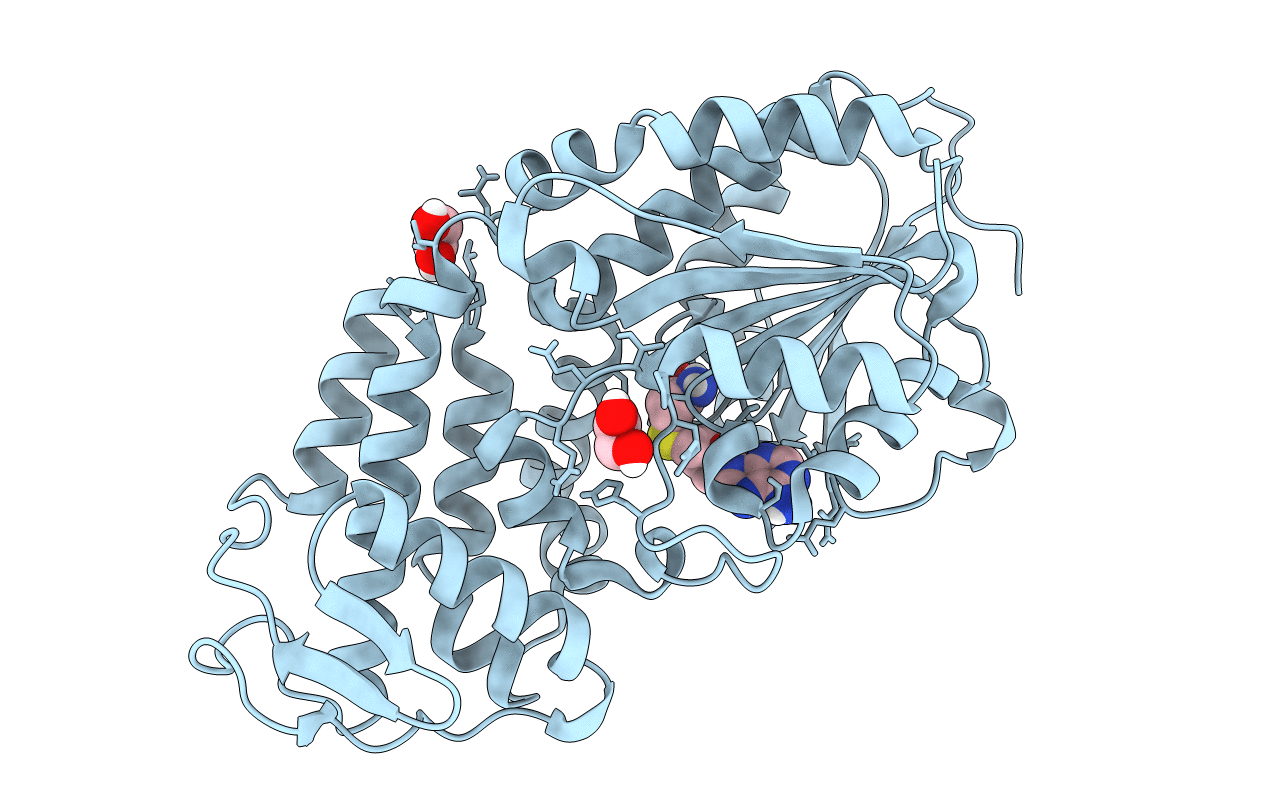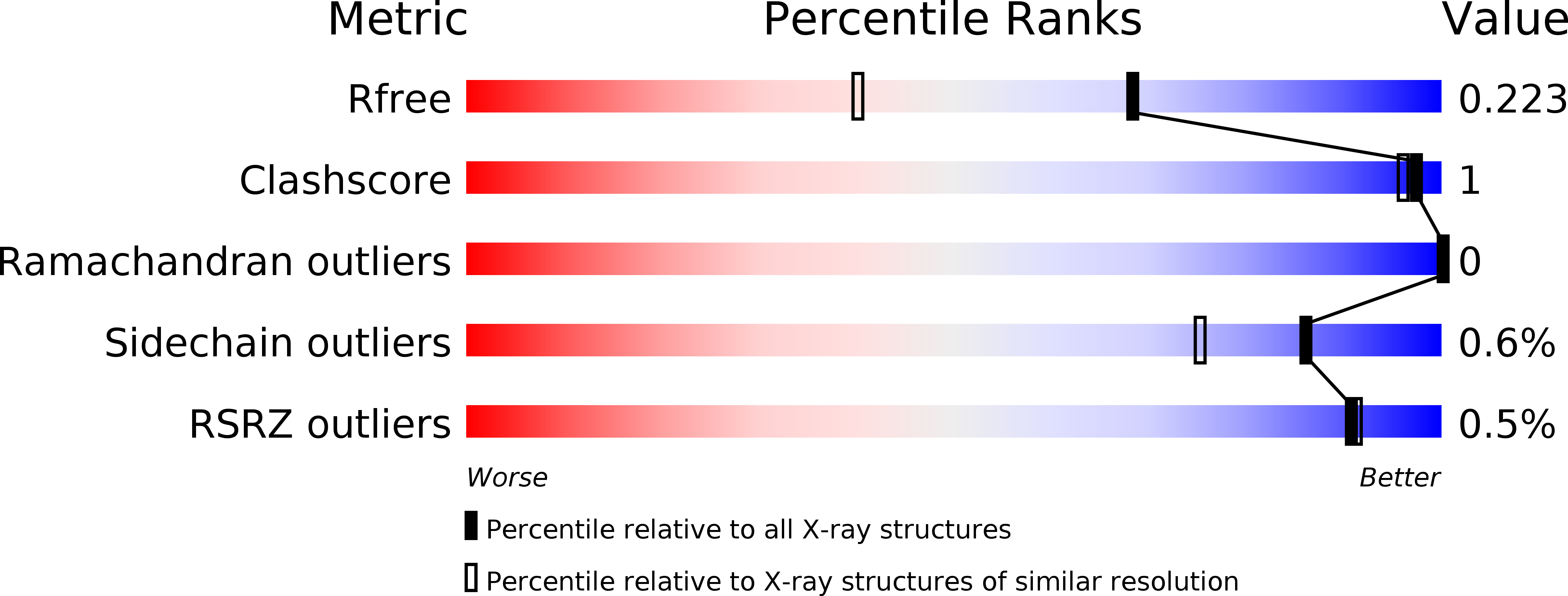
Deposition Date
2016-12-19
Release Date
2017-02-22
Last Version Date
2025-12-10
Entry Detail
Biological Source:
Source Organism(s):
Monascus purpureus (Taxon ID: 5098)
Expression System(s):
Method Details:
Experimental Method:
Resolution:
1.65 Å
R-Value Free:
0.21
R-Value Work:
0.18
R-Value Observed:
0.18
Space Group:
H 3


